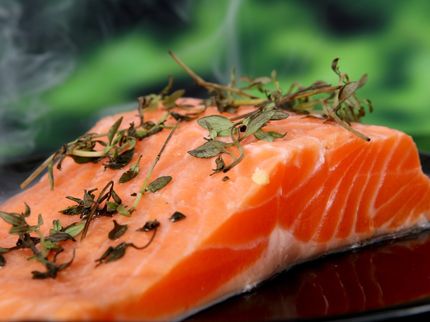Protein nitration influences allergic reactions
Advertisement
food proteins are nitrated through various processes. Just how these processes affect food allergies, however, is only now coming to light. The latest findings of a research project funded by the Austrian Science Fund FWF were presented at an international symposium in Italy. The findings show that in the case of a particular food protein the nitrated form can trigger a stronger allergic reaction than the non-nitrated form. At the same time, however, this nitrated form of the protein is better digested and therefore rendered "harmless".
It has been know for some time now that many proteins cause allergies. The fact that proteins can be altered - nitrated - by environmental influences and that their allergenicity can increase as a result is also known, but is a more recent discovery. What was not at all known up to now was whether the nitration of food proteins through environmental pollution or inflammatory processes in the body influences allergies. As of this past weekend, we know substantially more: At the 28th Symposium of the Collegium Internationale Allergologicum on Ischia, Italy, Dr. Eva Untersmayr presented the initial findings of an ongoing research project funded by the Austrian Science Fund FWF.
Dr. Untersmayr, who works at the Department of Pathophysiology at the Medical University of Vienna, explains her very surprising findings: "Increased allergenicity and yet fewer allergic reactions. This is - to pinpoint it - the result of our studies on ovalbumin, an important allergen found in eggs. If you compare the concentration of allergy markers, the IgE antibodies, following the injection of ovalbumin in nitrated and non-nitrated form in our animal model, a clear picture emerges: the nitrated ovalbumin has a stronger allergenic effect. A clear picture also emerges when both forms of the protein are administered in food and the same markers are measured again: the nitrated ovalbumin causes fewer allergic reactions. The two outcomes thereby appear contradictory - at first glance."
For Dr. Untersmayr and her colleague Dr. Susanne Diesner this result was an important indicator of the fact that although the nitrated form of the protein had a stronger inflammatory effect than the non-nitrated form, the nitrated protein is degraded faster in the digestive tract. To substantiate their ideas, they analysed the time taken for the enzymatic digestion of the two forms of protein in a model system that simulated gastric conditions. They actually succeeded to demonstrate that the nitrated form is rapidly digested, while the non-nitrated protein remained stable for up to two hours. "A food protein can actually only trigger an allergic reaction if it survives exposure to the gastric juices unharmed and is absorbed into the blood in the intestine. This is not the case with the nitrated ovalbumin we used as a model allergen despite the fact that it is actually more allergenic," explains Dr. Untersmayr.
The data also show that the effect of the nitration is already a complex process in animal models. Therefore, it would not be possible to apply the findings to the human organism without further studies. And this is precisely what Dr. Untersmayr would like to do next as part of her FWF project. Together with her research partners, the group of Professor Albert Duschl in Salzburg, she is also interested in the interaction between the bacterium Heliobacter pylori, one of the causes of gastric inflammation, and the nitration of food proteins. In these studies, Dr. Untersmayr is concentrating on the enzyme urease, which is produced by H. pylori. Should it emerge that food proteins are nitrated by urease - and that these proteins are more allergenic than the non-nitrated form - this would have to be taken into account in future treatment concepts for both allergy sufferers and patients with inflammation of the stomach. For Dr. Untersmayr this would mean that the value of a basic research project would not only be reflected in terms of the knowledge gained, but also in concrete benefits for patients.
Other news from the department science
Most read news
More news from our other portals
See the theme worlds for related content
Topic world Antibodies
Antibodies are specialized molecules of our immune system that can specifically recognize and neutralize pathogens or foreign substances. Antibody research in biotech and pharma has recognized this natural defense potential and is working intensively to make it therapeutically useful. From monoclonal antibodies used against cancer or autoimmune diseases to antibody-drug conjugates that specifically transport drugs to disease cells - the possibilities are enormous

Topic world Antibodies
Antibodies are specialized molecules of our immune system that can specifically recognize and neutralize pathogens or foreign substances. Antibody research in biotech and pharma has recognized this natural defense potential and is working intensively to make it therapeutically useful. From monoclonal antibodies used against cancer or autoimmune diseases to antibody-drug conjugates that specifically transport drugs to disease cells - the possibilities are enormous


























































